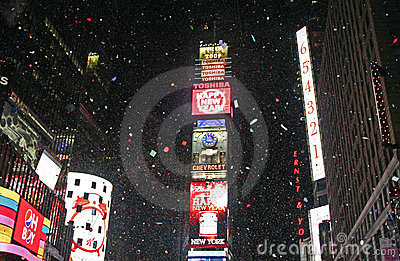Why Does January 1 Begin the New Year?
Posted by John Speaks and Keiko Mita on on 30th Dec 2016

Are you going to celebrate the beginning of the New Year? If so, you aren’t alone. Over one million people will descend on Times Square and another one billion people will watch the Times Square party at home. In all but two war years since 1907 a lighted ball has dropped over Times Square to bring in the new year. At the stroke of midnight 44% of American adults say they will kiss someone (count me in) and 45% say they will make a New Year’s resolutions (even if most will be broken).
The earliest recorded festivities in honor of the New Year date back to the Babylonians 4,000 years ago. Of course, then the New Year started on the Spring Equinox in late March. The occasion was celebrated with a huge religious festival called Akitu. On each of its 11 days a different ritual was held. Importantly, it was also the time when a new king was crowned or the current king’s reign was renewed. Other dates tied to the seasons were also used by ancient cultures. The Egyptians, Phoenicians, and Persians began the new year with the fall equinox, and the Greeks celebrated it on the winter solstice.

The early Roman calendar, which consisted of 10 months and 304 days, began on March 1 and was based on a lunar system. Januarius and Februarius didn't even exist until the second King of Rome, Numa Pompilius, created them in 700 B.C. At this time the New Year was moved to January 1 to coincide with when the Roman consuls began their term. Unfortunately nobody paid much attention so most continued to celebrate March 1 as the beginning of the year.

Over time the old lunar calendar fell out of sync with the sun, so Julius Caesar consulted the most brilliant mathematicians and astronomers of his time and introduced a new, solar-based calendar in 46 B.C. As part of the reform January 1 was re-introduced as the first day of the year at least in part to honor Janus, the Roman god of beginnings. Janus, the month’s namesake, had two faces allowing him to look back into the past and forward into the future. It all kind of made sense.

The Romans celebrated the beginning of the year by exchanging gifts (maybe a little bit of jewelry?), decorating their homes with laurel branches, offering sacrifices to Janus, and attending wild parties (we all know the Romans knew how to party). Medieval Christians weren’t very excited about pagan celebrations however and destroyed the fun by moving the beginning of the year to a religious holiday. Which religious holiday depended on their mood. That was in 567 at the Council of Tours.

Confusion reigned for over a millennium until Pope Gregory XIII declared January 1 to be New Year’s Day in 1582. You would think that would be it, but perhaps not surprisingly only Catholic countries followed the Pope’s edict. Over time Protestant countries followed suit, but it wasn’t until 1752 that the British Empire (including its American colonies) abandoned March 1 as the beginning of the year and adopted the Gregorian calendar.
Of course, not all cultures begin the year on January 1. The Chinese New Year celebrates the beginning of the Spring harvest and starts on the new moon that falls between January 21 and February 20. The Islamic New Year is the first day of the holy month of Muharram (typically late September to early October). It celebrates the emigration of the Prophet Mohammed from Mecca to Medina to escape religious persecution. The Jewish faith celebrates Rosh Hashanah, a two-day holiday commemorating the end of the seven days of creation. It generally falls in mid-to-late September -- economically speaking at the beginning of an agricultural cycle. And so on.
Regardless of when or why you celebrate New Year’s Day we hope it is a happy one!
Thank you to the following websites for help with this post!
http://www.infoplease.com/spot/newyearhistory.html
http://www.ibtimes.com/new-years-eve-numbers-984512
http://www.history.com/topics/holidays/new-years
http://www.sbs.com.au/news/article/2015/12/31/11-cultures-dont-celebrate-new-years-day-jan-1-0
https://en.wikipedia.org/wiki/Rosh_Hashanah
http://www.mirror.co.uk/news/world-news/islamicnewyear2016-what-muharram-2016-ashura-8939751
http://www.cnn.com/2013/06/14/world/islamic-new-year-fast-facts/

